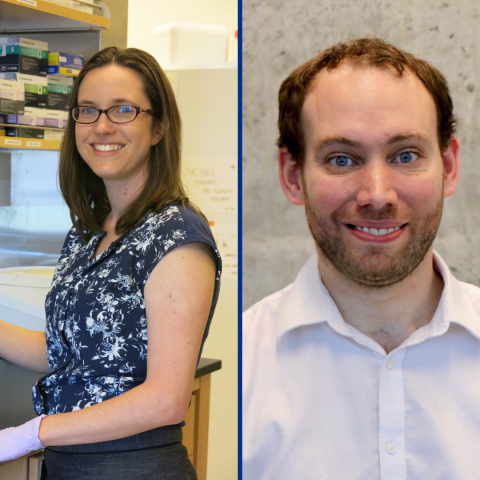ARCS Scholar Alumni—and husband and wife—Julia Maxson, PhD, and Ted Braun, MD/PhD, identified how two gene mutations act in sequence, like a one-two punch, to trigger acute myeloid leukemia (AML).
AML is the most common blood cancer in adults and one of the most difficult to treat because of the multitude of genes mutated in the blood-forming cells of people with the disease. Members of a team at Oregon Health & Science University (OHSU), the two researchers devised a way to change the order in which the mutations occur and are now able to study how mutation order impacts cancer development.
According to Maxson, senior author of a paper on their research in Nature Communications, “We hope that a better biological understanding will enable the development of more effective therapies.” Maxson is an assistant professor at OHSU School of Medicine and a member of Knight Cancer Institute. Her previous research has gone from basic research to clinical trial, which has been a rewarding experience for her.
Braun, the lead author of the paper, is an instructor of hematology and medical oncology in OHSU School of Medicine. He is interested not only in the biology of cancer but also in what it means to be a cancer patient. His curiosity about the many variables of why people get cancer drives his research. “This new study starts to tell us more about early events in cancer: a gene that sets the stage for cancer occurring down the road.”
Maxson became an ARCS Scholar in 2006 when she began her PhD studies, and Braun became an ARCS Scholar in 2009. Both have spoken about the difficulty of pursuing advanced degrees and careers in medical research, especially while starting and raising a family. “Without financial support from ARCS at this critical time in our careers, one or both of us would likely no longer be in science,” Maxson comments. “Knowing that ARCS members were behind us motivated us to continue.”
To watch a video about how ARCS Scholars are active agents in advancing science in America, follow this link.

